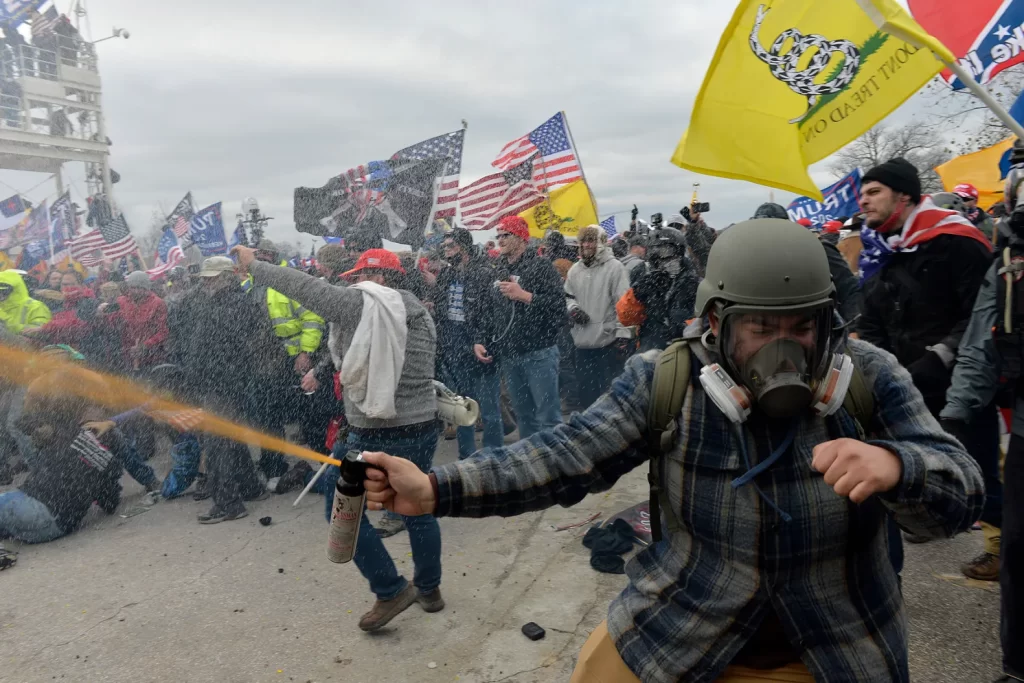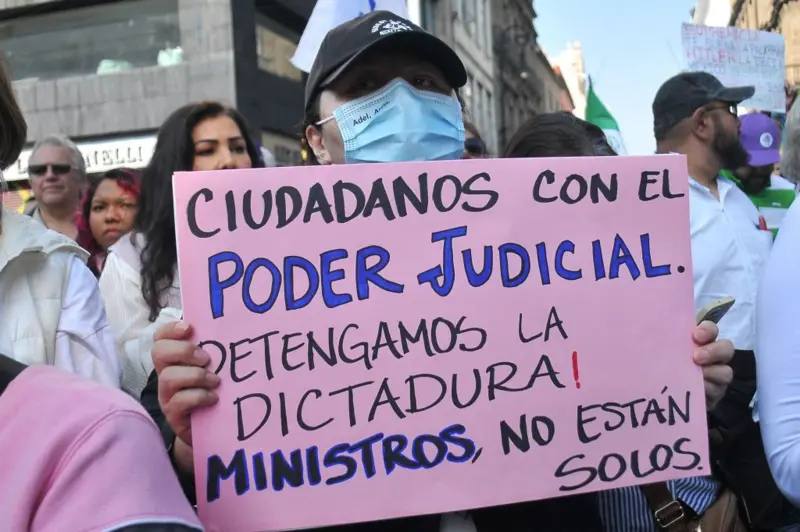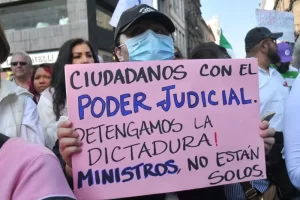Donald Trump’s team was aware that, if he refused to leave office after the 2020 election, it could spark a mass wave of civil unrest. But the man Trump sought to appoint as attorney general had an easy answer for that, according to the new indictment of the former president: invoke the Insurrection Act.
The indictment lists six as-of-yet unindicted co-conspirators. Co-Conspirator 4 is described as “a Justice Department official who…attempted to use the Justice Department to open sham election crime investigations and influence state legislatures with knowingly false claims of election fraud.” The indictment later refers to this individual as the man Trump intended to put “in charge of the Justice Department.” The description matches Jeffrey Clark.
The indictment of Trump records that on the morning of Jan. 3, Trump met with Co-Conspirator 4 and offered him the job of Acting Attorney General.
In a meeting that same afternoon Co-Conspirator 4 allegedly had a discussion with a Deputy White House Counsel, who had previously told Trump directly that there was no hope of overturning the 2020 election and that, “there is no world, there is no option in which you do not leave the White House” on Jan 20, 2021.
This same Deputy White House Counsel now “tried to dissuade” Co-Conspirator 4 from taking the post of Acting Attorney General. The counsel again made clear his conviction that there had not been meaningful fraud in the election. And he warned that there would be “riots in every major city in the United States” if Trump attempted to remain in office, against the will of the electorate.
Co-Conspirator 4 had an answer for the Deputy White House Counsel, the indictment alleges, that was equally disturbing and glib: “Well,” he said, “that’s why there’s an Insurrection Act.”
The Insurrection Act is a law that allows the president to deploy the military inside the borders of the United States to quell an uprising. The Act has been part of the U.S. legal framework for centuries. And it offers a wide exception to the standing prohibition against having the military operate as law enforcement within the nation’s borders. The underlying logic is that there are some crises so big that a president must act to keep the peace.
However the Insurrection Act has also been criticized as too loosely written — with few guard rails — such that Americans must rely on the restraint and good judgment of the commander-in-chief to ensure that the remarkable power won’t be abused. The Act has been used for high purposes. During the Reconstruction period, President Grant used it to go after the Ku Klux Klan. In the 1950s Dwight Eisenhower invoked it to help desegregate schools. Lyndon Johnson used it in the 1960s to help protect Civil Rights marchers in the Deep South. The last time it was invoked, by George H.W. Bush, was to help put down the 1992 uprising in Los Angeles following the acquittal of the police who brutalized Rodney King.
But the current indictment alleges that the Insurrection Act was considered as a means to use the power of the military — or perhaps even informal militias — to suppress the righteous outrage of American voters at the theft of an election — by the thief himself, with the guidance and cheer-leading of his hand-picked lackey at the Department of Justice.
Fuente: Rolling Stone









